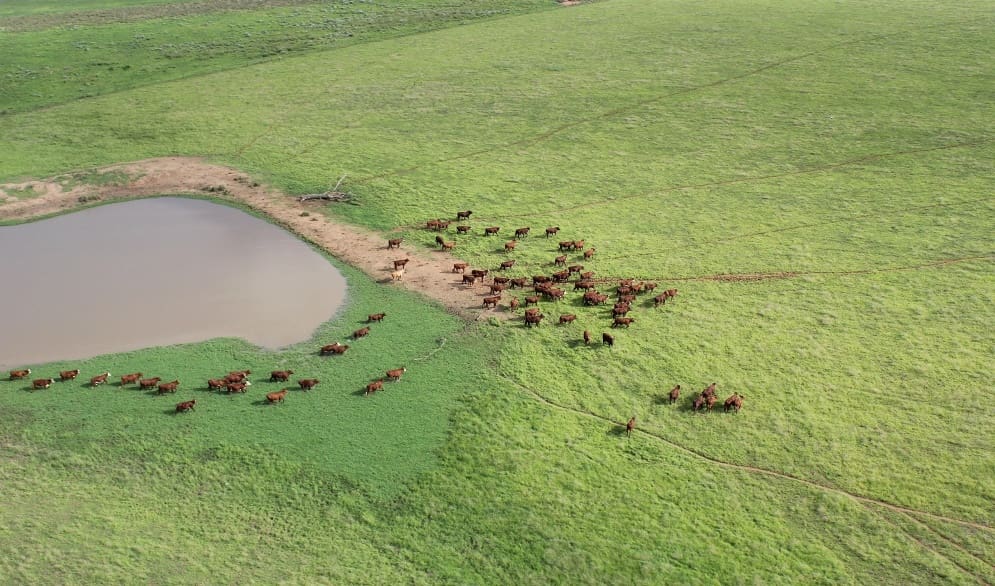
HUNDREDS of red meat producers will be surveyed about their natural capital assets in a Farming for the Future project assisted by Meat & Livestock Australia.
The next phase of the significant research partnership will involve hundreds of on-farm red meat producer observation sites across Australia.
Producers will be surveyed on farms in Victoria, New South Wales, South Australia and southern Western Australia, and researchers will do field observations and use satellite imagery to quantify on-farm natural capital. Financial and production information will also be used to ultimately help determine the relationship between natural capital and farm profitability and productivity, and whether there is a natural capital cost component.
Meat & Livestock Australia will work alongside Farming for the Future to conduct the multi-year study, which aims to quantify the contribution of different types of natural capital to the profitability and productivity of farm businesses.
Farming for the Future was founded in 2021 as a research and change program that aims to provide the evidence and practical support which producers need to incorporate natural capital as part of the foundation of their farming businesses, and to activate the supply chain to encourage and reward that shift.
MLA managing director Jason Strong said agriculture is integral to Australia’s role and identity on the world stage, and as the red meat industry moves toward a carbon-neutral future by 2030 (CN30), producers need a clear view of the costs and benefits of investing in their natural capital to support their farm management decisions.
“MLA is proud to be a partner of Farming for the Future, ensuring that the interests of the red meat sector are represented and considered as part of this once-in-a-generation, world-leading research project.
“Producers are already doing so much when it comes to managing their property’s natural capital,” Mr Strong said.
“Natural capital, in this instance, refers to all of a farm’s biological and ecological assets,” Mr Strong said.
“It includes native vegetation, productive pasturelands and croplands, as well as water resources, agroforestry, livestock and native animals,” he said.
“Currently, only a small portion of a property’s natural capital, like crops or livestock, are included in a standard set of financial accounts.
“Most ecological assets are invisible to farm accounting, despite producers understanding their potential economic benefit,” Mr Strong said.
“Farming for the Future is looking to examine how to quantify natural capital so it can become a major factor of production and part of mainstream farm management.”
“This project can play an important role in helping achieve Australia’s 2030 target of $100 billion of farm gate output, as well as a driver towards a nature-based method to carbon neutrality by 2030.”
Farming for the Future program director Dr Sue Ogilvy said the partnership with MLA was critical to the project achieving its objectives.
“A core principle of Farming for the Future is to ensure that all project outcomes deliver practical benefits to Australian producers.
Having MLA on board will help us to ensure that the ground-breaking research being undertaken, and the tools and resources that are built for producers and their advisors off the back of that research, meet the unique needs of Australian red meat producers,” she said.
Farming for the Future was initiated and seeded by the Macdoch Foundation in 2021 as a public interest initiative developed and delivered in partnership with philanthropists, industry, government and non-profits.
It is hoped to establish a cohort of Queensland producers, depending on future funding. Click here to express an interest in the project.

HAVE YOUR SAY